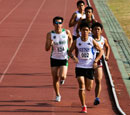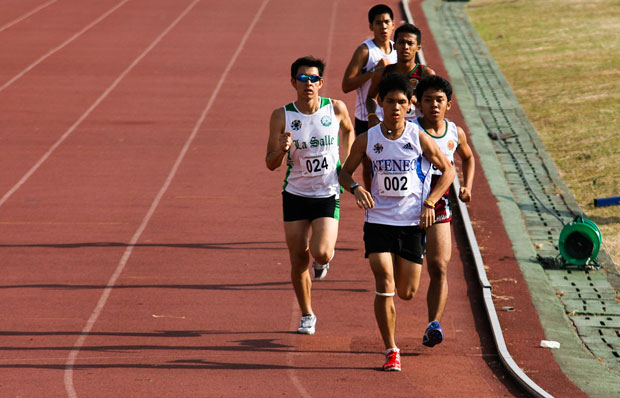The Philippines owes its first ever medal to Teofilo Yldefonso, who finished with a bronze medal in the men’s 400-m breaststroke swimming event in Amsterdam in 1928. Anthony Villanueva won the first silver in Tokyo in 1964, in a featherweight boxing event. The last Filipino to bring home a silver medal was Mansueto “Onyok” Velasco winning a light-flyweight boxing match in Atlanta in 1996.
Since 1996, however, the Philippines has not bagged a single Olympic medal. With Mongolia getting its first gold medal in the 2008 summer Olympics, the Philippines holds the record of having the most medals without a gold. Many point this poor showing in international sporting competitions as an indicator of the deplorable state of sports in the Philippines.
With the advent of the Southeast Asian (SEA) Games this November and the recently concluded FIBA Asia Basketball championship, Philippine athletics has once again thrusted into the spotlight.
Bringing home the bacon
Much of the Philippines’ drastically slacking performance in international athletics can be attributed to the government’s inconsistent funding. Communication Department Chair and Sports Commentator, Severino Sarmenta, agrees to this, saying that “[funding] is a problem, because you need coaching, competition and the wellness of the athlete.”
It is expected for the Philippine government to provide for the representatives of our nation, but, to the dismay of most people, this is not the case. Athletes are often left to pay for their expenses. Clacky Esteves, an Atenean member of the Philippine shooting team who will participate in the coming SEA Games says, “Ever since I started shooting, everything that I spent came from my allowance.”
The lack of funding over a long period of time can lead to a lack of infrastructure and equipment for athletes, incurring debilitating effects on the development of our nation’s top sportsmen. This is especially apparent for Andrea Faustmann, a teammate of Esteves, who laments the fact that Philippine equipment is often primitive compared to our strong competitors.
“In Singapore,” Faustmann says, “shooting is offered in nearly all schools including some high schools. They also have easy access to equipment like guns, gloves and ammunition which is expensive here [in the Philippines].” Such efforts by other countries to improve in sports, even in its grassroots program, contrast with the low level of support our government is giving to our national teams.
The private sector, it therefore seems, is a godsend in this aspect. While the government falls short, the country’s taipans have had a history of investing in our national teams. With Manuel V. Pangilinan heading the pack, taking after Danding Cojuangco’s footsteps, Philippine sports need not completely lose hope.
Earlier this year, Pangilinan founded the MVP Sports Foundation, outlining a set of plans that will hopefully propel the Philippines back to sporting credibility.
Setting priorities straight
Another reason for the Philippines’ poor quantitative showing in international competitions is the fact that some of the sports that bring us medals in regional competitions are not considered Olympic sports. Sports such as billiards and bowling are not part of the official Olympic competition, depriving the Philippines a steady source of contenders for medals. Outstanding Filipino sportsmen, such as Efren “Bata” Reyes and Rafael “Paeng” Nepomuceno, would have given Filipinos a level of credibility in their respective sports.
Another problem that manifests is our country’s lack of specialization. Other countries in the region, such as Thailand, have been resounding successes in the international stage due to their financial emphasis on certain sports.
“Look at Thailand, they said, ‘We are not going be world champions in basketball, or football, but let’s find a sport that we are good at, boxing.’ Indonesia decided on badminton. They already have gold medals,” says Sarmenta.
Filipinos passion for basketball plays an undeniable role in the lack of focus in other sports. “Blame basketball—it is such a simple game and it is joyful. But, the world has changed,” Sarmenta claims, saying that passion for the game is not enough for Filipinos to achieve glory, especially if Filipinos are forced to battle seven-footers.
Esteves also agrees with the idea of specialization. “I think the Philippines should follow this track,” she says, “but this should not be done at the [expense] of other sports. The Philippines should strike the perfect balance between specialty and diversity.”
Catching up
Despite all the problems that have plagued Philippine sports, there is reason to remain hopeful. The increase of attention directed towards sports other than basketball seems to point to a growing open-mindedness in the Filipino sportsman’s mindset. The Azkals and the Volcanoes, for example, have had stirring successes in recent years, allowing Filipinos an opportunity to veer away from an exclusively basketball-centric sports scene.
On another note, the increase in funding from the private sector is laudable. However, this must also be a challenge to the government, especially the Philippine Olympic Committee and the Philippine Sports Commission, to know how to take better care of promising teams, such as the Philippine Dragon Boat Federation. This particular team has been denied national team status, despite winning top prizes in prestigious international competitions.
If nothing else, though, Filipinos should take heart in the fact that our athletes have no shortage in self-confidence. Despite the financial struggles Filipino athletes face, it is indeed their passion that fuels the flame.






